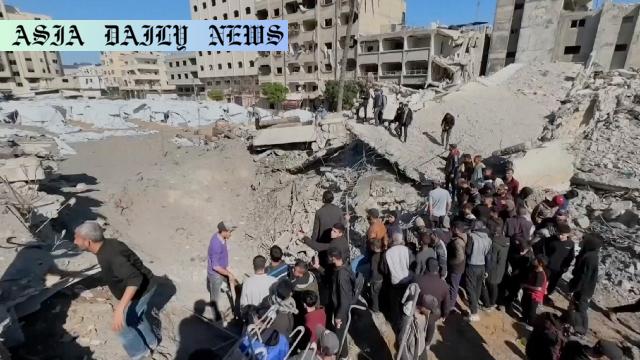Palestinians – Japan to accept two injured Palestinians from Gaza for treatment amid the escalating humanitarian crisis.
Japan will accept two injured Palestinians from Gaza for treatment.
The patients will be treated at the Self-Defense Forces Central Hospital in Tokyo.
This marks Japan’s first medical aid for Gaza’s conflict victims during the 2023 crisis.
The government ensures they will return to Gaza after treatment.

Introduction: Japan’s Noble Humanitarian Move
In a profound act of humanitarian support, Japan has taken a significant initiative to provide medical aid to two injured Palestinians from the conflict-stricken Gaza Strip. This marks a milestone in Japan’s international relief efforts, as it steps forward amidst a worsening humanitarian crisis caused by the ongoing conflict between Israel and Hamas. The decision underscores Japan’s empathy and proactive approach towards global crises, setting an example for other nations.
Context of the Decision: Escalating Crisis in Gaza
The Gaza Strip has been at the epicenter of heightened conflict following military actions between Israel and Hamas since October 2023. As bombings persist, healthcare infrastructure in Gaza has crumbled, leaving many injured civilians without access to adequate medical care. The Japanese government’s decision to accept these patients highlights its recognition of the dire medical and humanitarian needs arising from these events, as well as its commitment to global solidarity and assistance.
Details of the Reception and Treatment
According to government sources, the two Palestinians, who have expressed hope for receiving treatment, will arrive in Japan separately. The individuals will be accompanied by their family members and treated at the Self-Defense Forces Central Hospital located in Tokyo. This prestigious facility is renowned for its advanced medical infrastructure, offering these individuals a chance at recovery that is presently unavailable in Gaza. After completing their treatment successfully, these patients are expected to return to Gaza.
Japan’s Role and Responsibility in Global Aid
Japan’s initiative highlights a broader consideration of international responsibility in times of crisis. While Japan is often regarded for its technological advancements and economic power, this act of offering humanitarian aid showcases its ethical and compassionate side. By stepping into a sensitive geopolitical context, Japan reaffirms its stance on providing peace-centered solutions and promoting humanitarian principles globally.
Global Implications of Japan’s Humanitarian Efforts
Japan’s move also puts a spotlight on how middle powers can significantly contribute to alleviating global crises. In a world dominated by geopolitical play between superpowers, Japan’s quiet but impactful decision serves as an inspiring example of meaningful action. This could potentially encourage other nations to reassess their efforts and enhance their humanitarian contributions towards conflict-stricken regions.



Commentary
Palestinians in Need: A Global Responsibility
The unfolding crisis in Gaza underscores the need for global solidarity and support. Japan’s decision to accept two injured Palestinians for medical treatment is a commendable example that highlights the human side of international diplomacy. While many nations grapple with political intricacies, Japan has chosen action over rhetoric, signaling its commitment to human welfare over any political hesitations. The gesture is not only symbolic but lifesaving in an environment where medical facilities are overwhelmed or destroyed.
Japan: Leading By Example
Japan has consistently showcased itself as a nation that believes in solidarity, compassion, and action. By accepting Palestinians for medical treatment amidst turbulent geopolitics, Japan has set a precedent that transcends boundaries. It sends a strong message to the international community—humanitarian aid should never be politicized. Such actions reinforce the role of middle powers in creating positive change, demonstrating that impactful contributions arise not from dominance but from empathy and decisiveness.
Inspiring Nations to Act
This gesture also shines light on the missed opportunities by many nations to step forward during crises. Japan’s commendable actions come during a situation where global hesitancy often takes precedence over urgency. It could serve as a blueprint for other countries to consider providing aid, especially in times when conflicts surpass borders and create humanitarian crises that demand collective global responsibility. Nations should reflect on the essence of humanity that Japan has demonstrated and consider stepping up their efforts.
A More Compassionate Future
Ultimately, supporting the injured and vulnerable reflects the very essence of humanity. Japan’s initiative reaffirms that even in the face of global adversity and political complexities, nations can and should prioritize human lives. This decision does more than offer medical treatment to two individuals; it reinforces global hope in the power of compassion and unity. One can only hope that Japan’s example ignites a chain reaction of kindness and responsibility worldwide. It’s a shining example of how nations should operate in collaboration to uphold the sanctity of human life, even in the darkest of times.